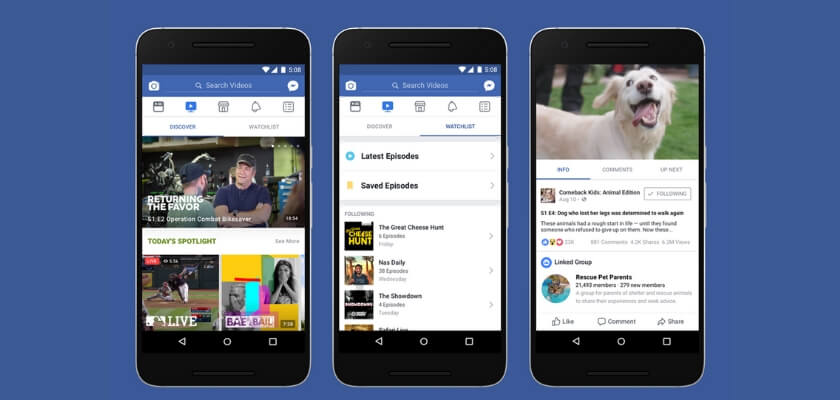An anonymous interview published on Digiday UK tells the story of a video creator struggling to make the most out of Facebook Watch.
Facebook Watch, the tech giant’s video-on-demand service, released in August 2017 and designed to compete with YouTube, has sailed in stormy waters since the very beginning. Around 2018, when Watch became available worldwide and the mid-roll ads started to generate more profits, publishers and creators became more confident with the platform and many started to see it as a real alternative to YouTube.
According to the developer though, since the beginning of 2019 Watch appears to underperform.
The main problems seem to be a lack of support for the creators, issues with the reach of the videos and problems with the publishing tools, distancing it in terms of quality from Youtube and making the latter more appealing.
The creator owns a Facebook Watch show with more than half a million followers. He underlined the lack of stability of the platform. There are too many changes often done on a monthly basis. Apparently, some months are great in terms of reach and revenues and some others are terrible, even when you are posting in the same times and it seems to be depending on unpredictable tweaks of the algorithm and other functionality updates.
For a creator that finances his own shows, this can be problematic. Although the video creator interviewed declares that he has done well with the platform in the past, he struggles with continues fluctuations in revenues, often passing from $10,000 a month to $100 a week. Video making is very expensive, “you are up a creek if it doesn’t pick up the next month”.
Overall, as stated by the creator, 2019 has been a harder year for converting views into cash. When asked if Facebook gave him some explanation, he replied: “They said they had a bug that, in one particular month, affected reach across all pages, and it should be returning back to normal”.
These technical issues should be communicated in time though, especially to the people that use the social network to make a living. “They change things all the time, and that’s the problem. It’s not allowing a stable environment”. He follows “As a creator who’s not like Unilad or one of these big publishers — I make this stuff myself — it doesn’t even have to be hugely profitable. If you know you can make a stable amount of money off of Facebook, personally, I’d stick with it”













